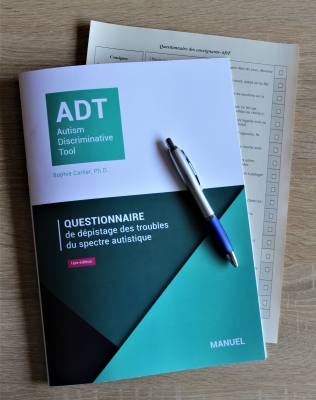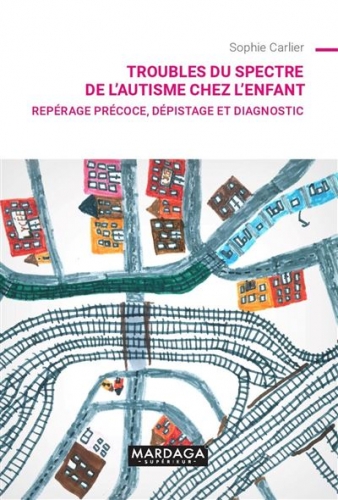The ADT results from several years of research within the context of a Ph.D programme at the Université Libre de Bruxelles. It was created in response to the lack of effective ASD screening in many European countries. Its validation started with an exploratory study, followed by a prospective multicentric study. Results from this latter indicated a value of 0.94 for specificity and 0.83 in terms of sensibility, allowing for differential screening between risk of ASD and probability of another (neuro)developmental pathology.
The creation of ADT and its final results were presented in various international congresses such as the 10th international congress of Autism Europe, Budapest, Hungary (2013); 9th international congress of child and adolescent psychopathology, London, UK (2014); 15th international conference of child and adult psychiatry association, Athens, Greece (2015); 17th international conference of the european society of child and adolescent psychiatry, Geneva, Switzerland (2017); French congress of child and adolescent psychiatry and allied disciplines, Angers, France (2018); 10th annual world congress of neurotalk 2019, Osaka, Japan (20198); 18th congres of the european society of child and adolescent psychiatry, Vienna, Austria (2019); 12th international congres of Autism Europe, Nice, France (2019); 19th international meeting of speech therapy -special ASD, Paris (2019).
Article relating to the exploratory scientific study : Carlier, S., Kurzeja, N., Ducenne, L., Pauwen, N., Leys, C., & Delvenne, V. (2017). Differential profile of four groups of children referred to an autism diagnostic service in Belgium: Autism-specific hallmarks. Journal of intellectual Disabilities, 22(4), 340-346.
Article relating to the validation study (1) : Carlier, S., Ducenne, L., Stanciu, R., Deconinck, N., Wintgens, A., Orêve,M-J., & Delvenne, V. (2019). Improving autism screening in French-speaking countries: Validation of the Autism Discriminative Tool, a teacher-rated questionnaire for clinicians' use. Research in Autism Spectrum Disorders, 61, 33-44.
Article relating to the validation study (2) : Carlier, S., Ducenne, L., Colinet, H., Poncin, F., & Delvenne, V. (2021). Plus-value de l’implication des enseignants dans le dépistage des troubles du spectre autistique : divergences et convergences d’observations avec les parents et les professionnels sur base de l’Autism Discriminative Tool (ADT). Neuropsychiatrie de l’enfance et de l’adolescence, 69(5), 211-220.






